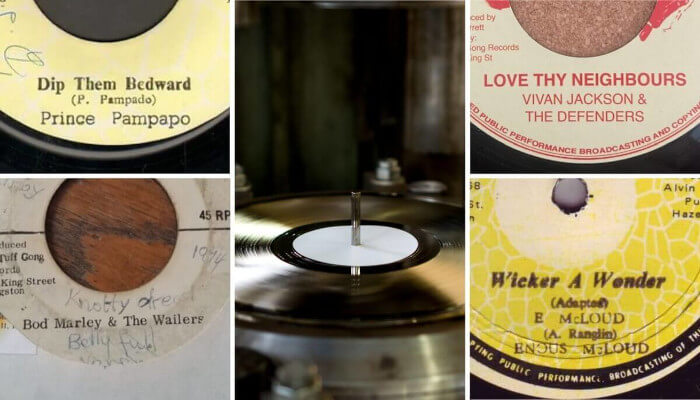Written by Enki’s Music Records – all rights reserved – kindly mention us as the source if you want to use parts of this article.
If you’ve ever collected Jamaican reggae vinyl, you’ve likely noticed a quirky charm: misspellings and typos on labels or covers.
Names of artists, songs, and even entire record labels are sometimes wrongly written, creating an almost mythical allure to these records.
These errors aren’t rare—they’re almost part of the culture! But why are these mistakes so prevalent?
It often comes down to the grassroots nature of Jamaica’s music industry in the 60s, 70s, and 80s.
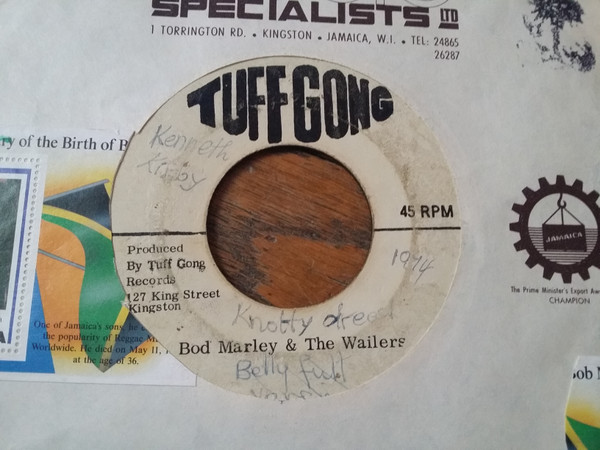
A history of creative chaos
The Jamaican music industry in the 1960s-80s was an energetic but resource-strapped scene. Record labels operated on tight budgets, and the process of designing, printing, and distributing vinyl was often rushed.
In a country where Patois—a distinct, phonetic English creole—was the dominant spoken language, spelling conventions were frequently fluid.
Add to that the fact that many label operators, printers, and artists didn’t have formal training in English spelling or grammar, and you have a recipe for delightful, unintentional creativity.
Printing processes often involved small, local presses with limited quality control. Once a label was printed, mistakes were rarely corrected, as the costs of reprinting were prohibitive.
In the fast-paced and competitive world of reggae production, getting the music out often took precedence over perfect spelling.
Labels were focused on the sound—not spelling perfection!
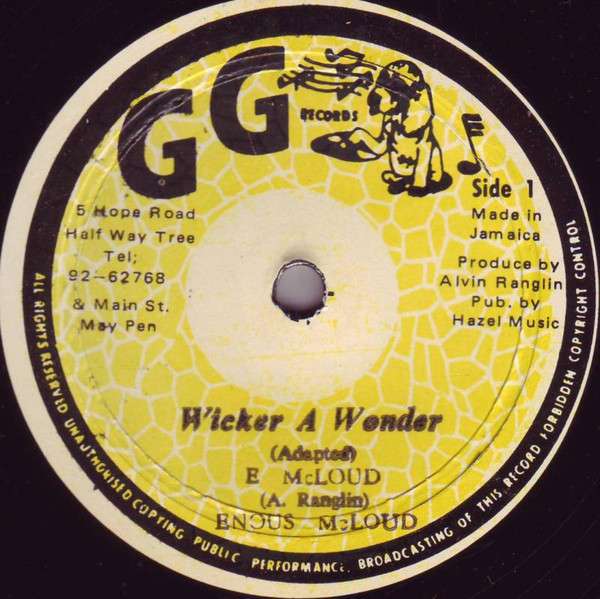
Examples of typos on Jamaican reggae vinyl
- Horace Andy: On some Jamaican pressings, his hit “Skylarking” appears as “Sky Larking”, which alters the meaning entirely.
- Bob Marley & The Wailers: Early pressings listed the band as “The Wailiers” and the lead singer as “Bod Marley”.
- Delroy Wilson’s “Dancing Mood” is written as “Dansing Mood” on certain pressings.
- Robbie Shakespeare from Sly & Robbie occasionally becomes “Shakespare”.
- Enos McLeod occasionally becomes “Enous” and “McLoud”.
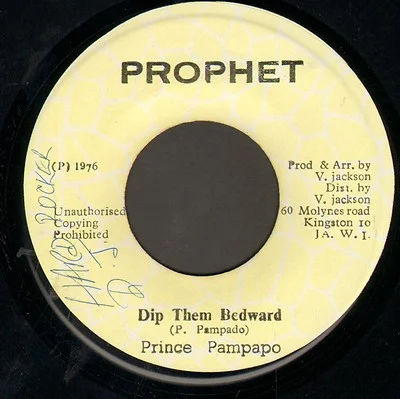
- Barrington Levy is sometimes presented as “Barrinton Levy” or as “Barrington Levi”.
- Prince Pampidoo has an incredible amount of variations, such as Prince Pampado and Pampapo, misspelled twice even in a same vinyl.
- Junior Murvin’s “Police and Thieves” occasionally appears as “Police & Thief”, a literal phonetic interpretation of how some locals pronounce it. Also, his surname sometimes becomes “Mervin”.
- Even the stamps are sometimes wrong, like Dr Alimantado’s example below.
- Mistakes are also present on recent pressings like the below, where Vivian Jackson is spelled Vivan.
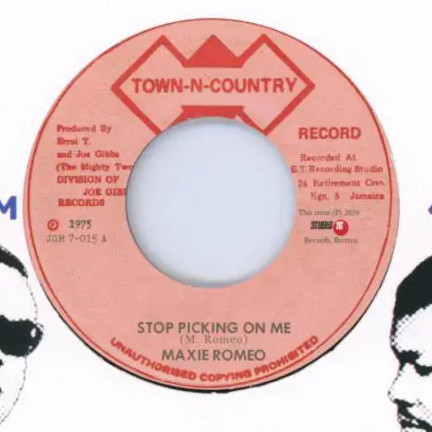
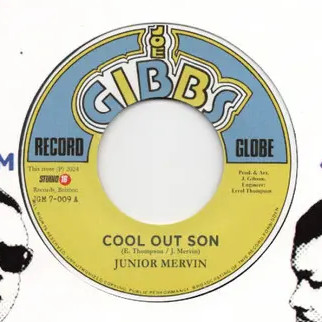


Cultural significance of the typos
These typos add authenticity and a sense of history to the records. They’re a reminder of reggae’s DIY roots and its focus on creating timeless music rather than perfect packaging.
For collectors, these typos add to the appeal and rarity of the records. A mislabelled version of a famous album can become a prized possession, not in spite of its imperfection, but because of it. In fact, some typos have become so iconic that they’re now seen as part of reggae’s identity.
In a world obsessed with perfection and polish, there’s something undeniably human about these reggae misprints. They serve as a reminder that reggae was born from struggle and resourcefulness, created by people who prioritized passion and message over meticulous detail.
Do you have any favourite misspelt vinyl labels in your collection?
Written by Enki’s Music Records – all rights reserved – kindly mention us as the source if you want to use parts of this article.

